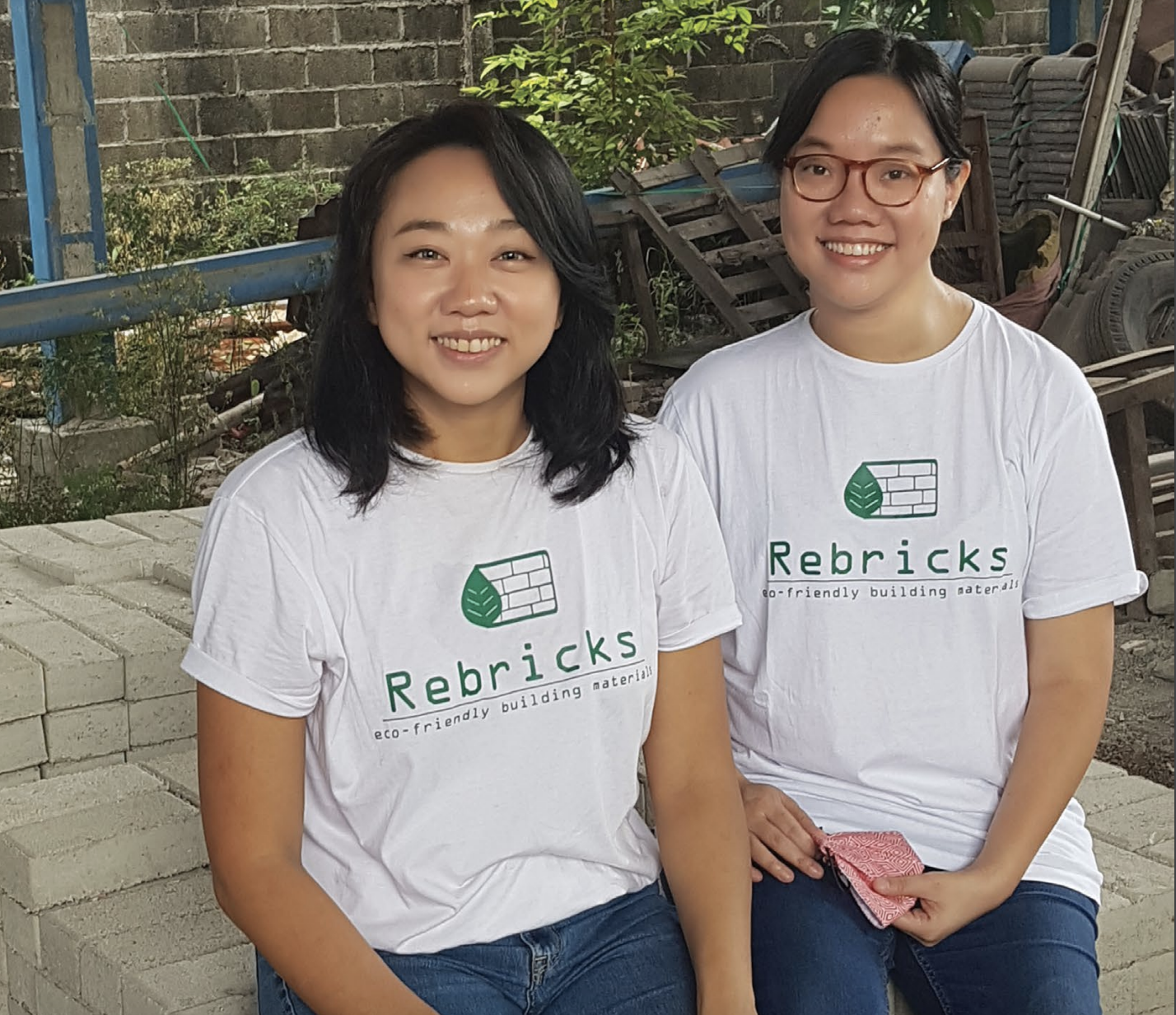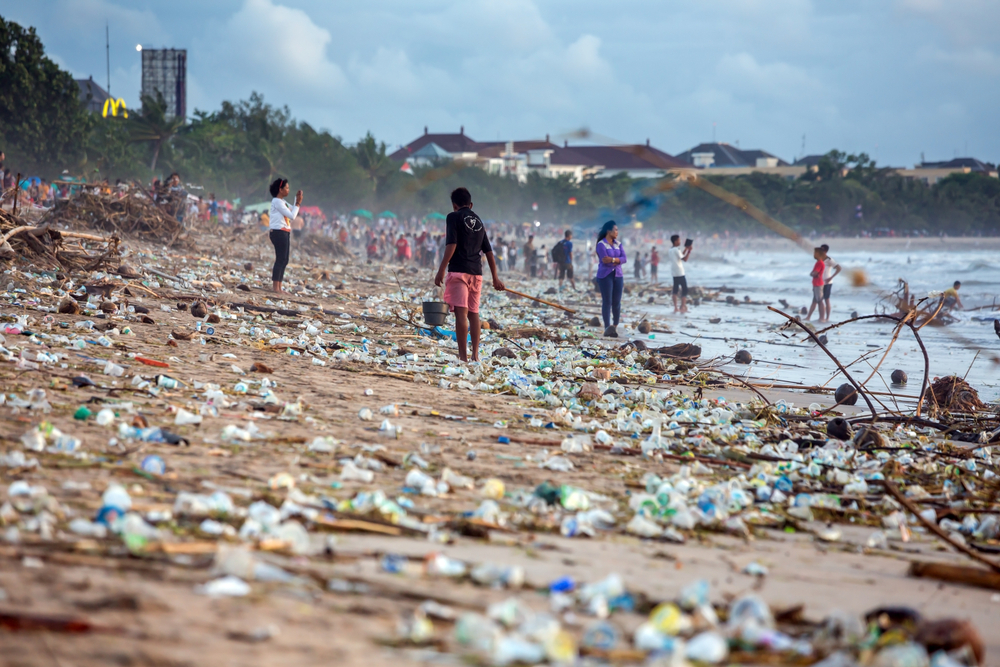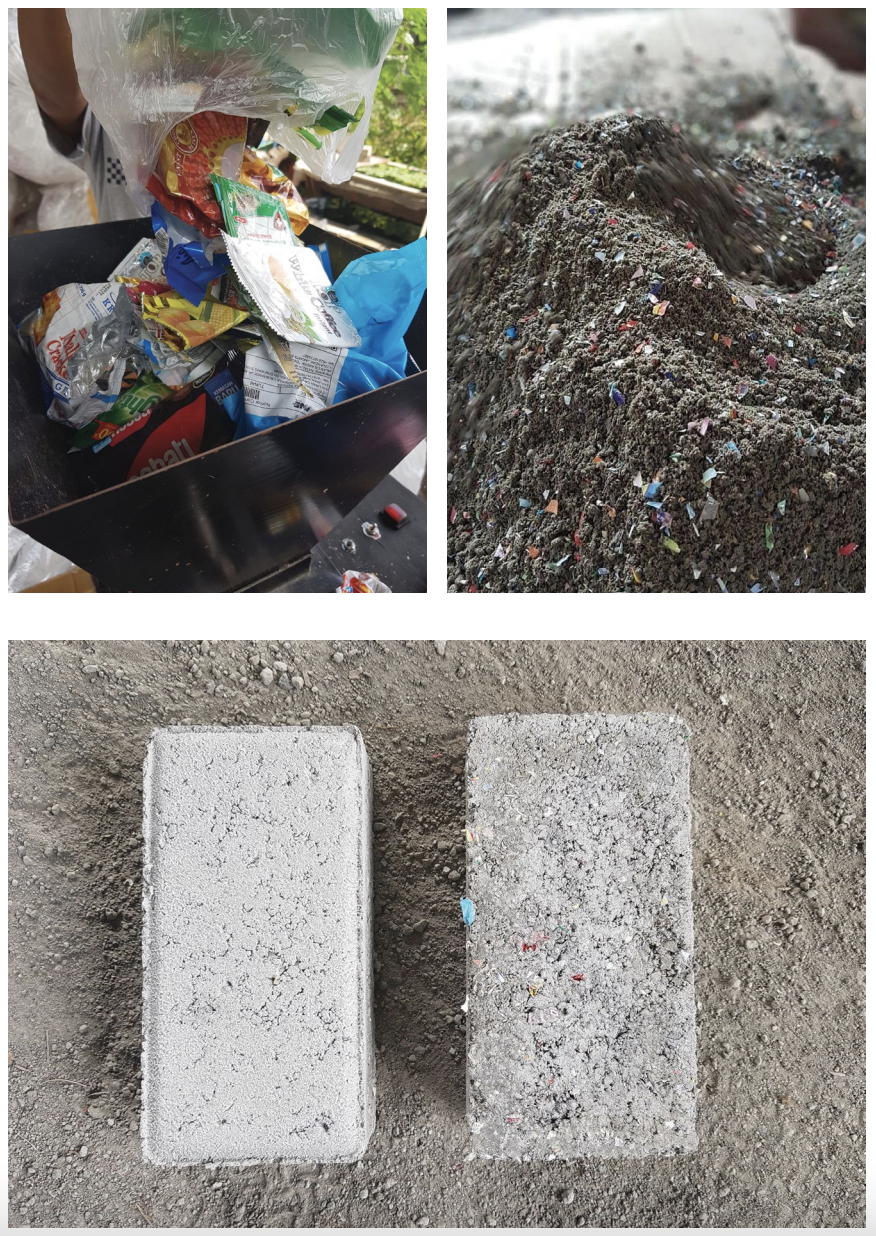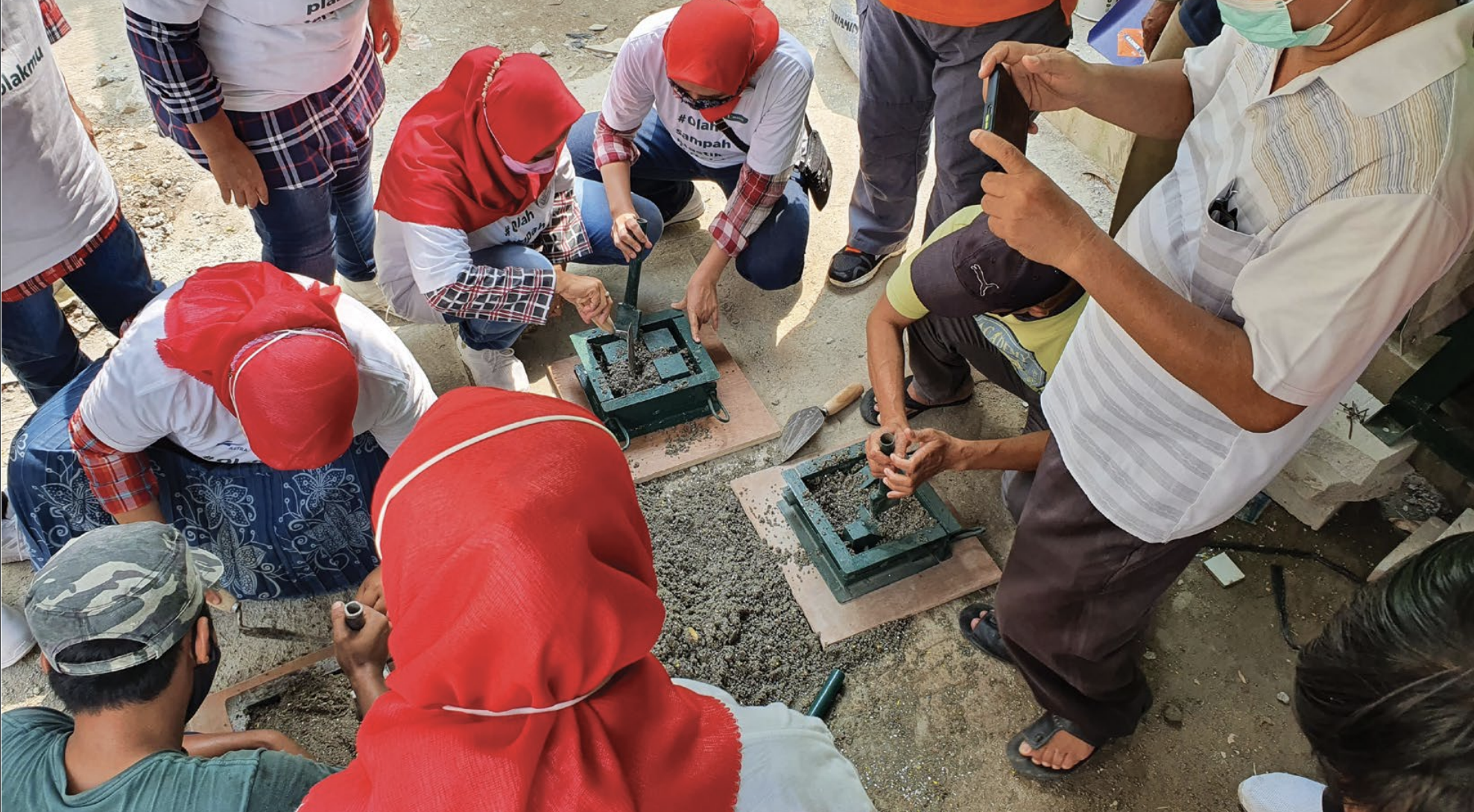Meet the dynamic duo putting waste to work in Indonesia
Indonesian entrepreneurs Ovy Sabrina and Novita Tan have made a meaningful mark with their firm Rebricks, which transforms plastic detritus into construction material

Like many countries, Indonesia struggles to process the vast amounts of plastic waste it generates. But as an archipelago nation, comprising thousands of islands spread across an enormous geographic area, the problem is even more challenging to solve. It’s also more urgent since few of the islands are equipped to dispose of, let alone recycle, non-valuable plastic waste. The lack of technology and infrastructure means that much of this trash ends up in landfills or, worse, in the surrounding waters and environment.
Enter Ovy Sabrina and Novita Tan, two young female entrepreneurs who wondered how they could turn the tide and help tackle the country’s mounting waste crisis. Friends since university, the two had grown increasingly concerned about the legacy of waste that future generations would inherit. The motivation was personal for Novita, the CEO, who was pregnant at the time.
Ovy’s family ran a concrete factory in Jakarta and in 2018 the two embarked on research and development to see if it was possible to transform plastic waste into construction materials. They ultimately discovered a formula for pavement blocks that met Indonesia’s national standards for pressure power and other metrics—and the Rebricks brand was born.
Initially, Ovy and Novita personally collected the waste they used, including discarded coffee sachets and other plastics, from street food vendors around the city. When they unveiled their first product, they also launched a social media campaign, urging people to send their non-valuable plastic waste to them. The response was overwhelming: Individuals were not only willing to contribute but they covered the shipping costs themselves. The enthusiasm and support greatly exceeded the duo’s expectations.

Today, the company has established drop-off points around Jakarta and collects up to 60 kilograms of plastic waste per day. Supplies pour in from all over and mountains of plastic have accumulated at their workshop, where the plastic is shredded and blended with other materials to create a range of products, including pavement blocks, hollow blocks, and ventilation blocks.
Together, the friends have built a self-sustaining green business that is reshaping the way people in Indonesia view and utilise plastic. As Ovy and Novita look to expand the business and diversify their product line, they also hope to inspire others to join the zero-waste movement.
We recently caught up with Ovy, Rebricks’ chief operational officer, to discuss the company’s latest projects and expansion plans, the unique challenges Indonesia faces, and reasons to be optimistic about the future.
Who typically uses your construction materials?
In the beginning, the majority of our customers were direct users, like homeowners. But after that, architects started to approach us and wanted to use our products. And these days, we work with bigger companies that have also become our recycling partners. They give us their waste and then buy back our products to build parking lots and that kind of stuff.
We’ve also been working with Habitat for Humanity for the past five months and have built around 17 homes for people in need. These houses are a collaboration where all the recycled construction materials are from us. And we also work with developers, but mainly smaller ones at this point. And we work with a restaurant chain, Hoka Hoka Bento, and have become their recycling partner as well. They are using our blocks in most of their restaurants in Indonesia.
How do your costs compare to traditional materials?
Actually, from the get-go, we thought about the business aspect of our products, so we are quite competitive compared to traditional construction materials. The range in price is big, especially in Indonesia, because the government doesn’t have strict rules for measuring or checking every supplier. We can only compare our products with those of companies that we know are responsible. Compared to them, our price is in the range. And the pressure power of our products also fits squarely within the industry range. We are not aiming for a niche market. We want to penetrate the normal market. That was our vision from the start.

Do you know how much total plastic waste you’ve recycled?
So far, we have recycled around 20 to 21 tons of nonvaluable plastic waste. But considering that the waste we recycle has no solution, there’s a direct impact. That means we have stopped that amount of plastic from ending up in the landfill. Twenty-one tons translate into around 10,500 square metres of pavement blocks. Of course, our products are not all pavement blocks—there are also hollow blocks— but it gives you an idea. Indonesia comprises thousands of islands, so it’s surrounded everywhere by water.
What are the challenges of this unique geographic situation?
The cost of transporting waste between islands, whether for disposal or to be recycled, is very high. That’s an enormous challenge: How can we make the waste system here more sustainable? We are an island nation. To be honest, we need recycling factories on every island, but that costs a lot of money. And just sending one container full of waste from one island to another to recycle non-valuable plastic is extremely expensive. Even if we educate people to sort their waste so it doesn’t end up in the ocean, where can it go? The government doesn’t have the facilities. Of course, they have the landfill. But they don’t have a facility to process waste for the whole island.

Have you thought about expanding your operations and opening another facility elsewhere?
Later this year, fingers crossed, we will have another facility in another city. And we are also trying to find a way to open a pilot project in other cities, like in Bali. To open a workshop in another city costs a lot of money because we need land. We need more than 1,000 square metres and the machinery and all the infrastructure costs a lot of money.
The second program we are developing is a new line, more toward interior stuff, like chairs, ashtrays, that kind of stuff. Why? We think these kinds of products will be easier to replicate. But we’ll test the market first before we bring all of our machinery there.
You frequently speak at conferences and events to promote sustainability. What’s your message?
My message is always the same: Just start. Sometimes when people talk about zero-waste, they become very “perfectionist” about it. They see it as all or nothing. But in my opinion, start small and build up from there. If I’m talking to an entrepreneur or someone who wants to launch a startup in sustainability, I usually say, “Just do it.” When people create a business or a start-up, they sometimes think too much. Sometimes you just need to do it and you’ll find a way.
To solve the sustainability problem, we need systemic change. Every aspect of the population—the government, the private sector, and the people—needs to solve it. But I’m optimistic. We’ve started to see people launching environmental awareness campaigns and becoming zero waste influencers. In the past three years, it’s gone from not being a big issue to suddenly everyone is aware of the importance of living more sustainably.
This article was originally published on asiarealestatesummit.com. Write to our editors at [email protected].
Recommended
Why everyone is moving to Selangor and Johor: Malaysia’s real estate comeback
Malaysia’s upturn in fortunes is especially prevalent in secondary destinations such as Selangor and Johor
Penang’s silicon boom: How the US-China tech war is supercharging local real estate
Penang’s booming semiconductor industry has created ripples within the local real estate sector
New leader, new opportunities: How Hun Manet is shaking up Cambodia’s real estate game
Hun Manet is overseeing decent economic growth and widening access to the country’s real estate market for foreigners
Singapore embraces inclusive housing reforms amid resilient demand
The Lion City’s regulatory strength continues to exert appeal for international investors








